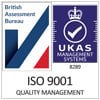The database is at the heart of all modern recruitment companies – but getting the most value out of that database requires innovative recruitment database software which doesn't require you to switch to a different database or change your own tried and tested processes. For ultimate efficiency and to truly get the best from their investment in recruitment software, companies should look not just for recruitment database software, but recruitment process software, designed to fully support internal workflows and procedures.
Requirements of Recruitment Database Software
Having a recruitment database is of little or limited value if a business can't turn that data into business advantage.
The ability to store data and allow that data to be searched and queried are just two functions of recruitment database software. It needs to actively assist the recruitment process, offering time efficiencies at a number of key steps, and assisting consultants to progress the overall recruitment process. But before the data can be used efficiently, it first of all has to be acquired and stored in an efficient way.
Here are the main issues which recruitment database software needs to be able to deal with efficiently:
Time to input data – If data from CV's has to be entered manually into the database this magnifies the human time spent on each CV and tends to undermine the efficiencies gained at the searching and query stages.
Multiple sources and formats – Gone are the days when recruiters could require all applicants to complete an application according to a fixed format, to make reading and processing them easier. Now, especially for specialist skill areas, the challenge is to find quality applicants from whatever source might help, be that responses to direct advertising or finding CV's held on job boards or social networking sites such as LinkedIn. Some CV's may not even be in CV format, but may be a completed profile on a business site. Being able to include all these sources in your database and search them, gives a much wider pool of candidates to work with – but processing all these formats can be a challenge for some recruitment software.
Duplicate CV's – While candidates won't usually apply for the same job twice, they may well apply for multiple jobs with the same company at different times, so it is important to spot when a duplicate CV arrives. A more frequent problem in the age of social recruiting, however, is that the software which goes searching for CV's and profiles online finds someone's CV posted on multiple job boards or networking sites. Here, your recruitment database software needs to spot that they are all for the same person and deal with them appropriately.
Missing data – Your database needs to alert you when there is data missing from CV's and provide an organised way of letting consultants decide how to manage that, instead of simply loading them into the database.
Non-intuitive search languages – Having to learn a query language specific to your particular database creates significant costs for a recruitment business in terms of training and support. It also makes it very difficult to switch between different databases or software if a new search language has to be learned each time.
Matching against vacancies – A database of CV's is of limited use unless it allows quick and easy matching against vacancies. If vacancy data is held in a different place or in an incompatible format, this limits the ability of recruiters to know what matches they may be holding. Ideally, a database should also store vacancy data in a similar format to CV's to enable easy and direct matching, either to match a new vacancy against existing CV's or a new CV against existing vacancies.
Imposing workflows – Recruitment process software which assumes a specific workflow will mean consultants are either forced to adopt new processes – which may or may not suit the specific niche or client base they work with – or force them to find workarounds which can result in the database not accurately reflecting the current state of a particular CV, or vacancy.
All these problems can lead to recruiters switching to different types of database in the hope of improving some of these problems – but the process of switching can itself be disruptive.
Leveraging Your Data with Recruitment Process Software
Getting the best from your recruitment database means focusing not just on the data it contains but the overall recruitment process it is there to support – and this is just what DaXtra's recruitment process software is designed to do. DaXtra Capture and DaXtra Search are our key tools for populating your CV database, finding matches and organising workflows. Designed specifically to meet the needs of the recruitment industry, these two modules offer recruiters:
Easier database growth – Enlarge your candidate pool from multiple sources while also ensuring clean data.
Easier data mining – Easily find data within your database, using intuitive, natural language searching.
Rich data – Enhance business intelligence and efficiency by adding recruiter notes and recording history.
Compatibility with your existing database – We offer a variety of formats to work with most currently used databases.
Reporting – Not just searching CV data and matching with vacancies, but also allowing you to search and report on your own data e.g. by recruiter or by team, or by skill. This turns your database into a business intelligence tool to help make strategic decisions, monitor performance and give visibility of your data assets.
Support for the way you actually work – You dictate the workflow you want to have, with the database assisting and enabling that. For instance, CV's can easily be compiled into longlists or shortlists, ready to be passed on to another consultant for action or review.
Recruitment Software from DaXtra
You can request a demonstration of DaXtra's suite of recruitment software by contacting us today.


